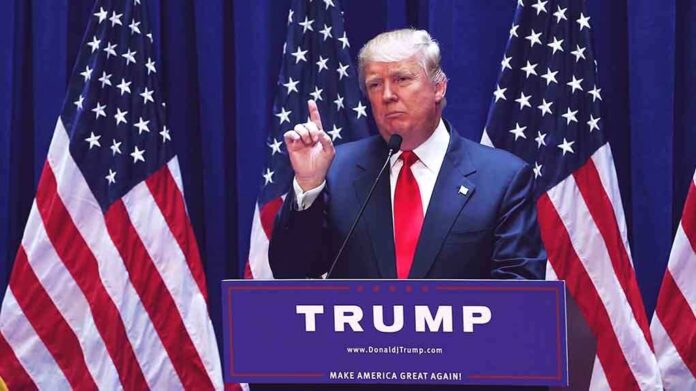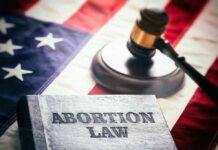
In a decisive blow to judicial activism, the Supreme Court’s 6-3 ruling in Trump v. Casa effectively ends the era of nationwide injunctions that have repeatedly thwarted President Trump’s agenda, marking a historic shift in the balance of power between federal courts and the executive branch.
Key Takeaways
- The Supreme Court ruled 6-3 that nationwide injunctions exceed the equitable authority granted to federal courts by Congress, significantly limiting the power of individual district judges to block presidential policies.
- Justice Amy Coney Barrett delivered a strong rebuke to Justice Ketanji Brown Jackson’s dissent, emphasizing that the majority ruling aligns with over two centuries of legal precedent and constitutional principles.
- The ruling represents a major victory for President Trump, who called it a “monumental victory for the Constitution, the separation of powers, and the rule of law.”
- While not ruling directly on birthright citizenship, the decision removes a significant barrier to implementing Trump’s executive order on the issue.
- Future challenges to presidential policies will now require class action lawsuits rather than individual plaintiffs seeking nationwide relief.
A Landmark Decision Reining in Judicial Overreach
The Supreme Court’s ruling in Trump v. Casa delivers a significant check on what many conservatives have long viewed as judicial activism run amok. Writing for the majority, Justice Amy Coney Barrett articulated that “universal injunctions likely exceed the equitable authority that Congress has given to federal courts.” This decision effectively ends the practice that has allowed single district judges to halt nationwide policies with the stroke of a pen, often shopping for favorable jurisdictions to challenge presidential actions.
The case centered on President Trump’s executive order regarding birthright citizenship, though the Court’s ruling focused not on the substance of that policy but on the procedural question of whether lower courts have the authority to issue nationwide injunctions. The conservative majority answered with a resounding no, finding that such sweeping powers exceed the authority granted under the Judiciary Act of 1789. This decision marks a return to historical norms in which judicial remedies were limited to the parties directly involved in litigation.
NEW: In Trump v. CASA, a case about the universal injunctions putting the president's order on birthright citizenship on hold nationwide, the Supreme Court grants the government's applications to partially stay the injunctions from district courts.
— SCOTUSblog (@SCOTUSblog) June 27, 2025
Barrett Delivers Crushing Response to Dissenting Justices
In one of the most striking passages of the majority opinion, Justice Barrett directly confronted Justice Ketanji Brown Jackson’s dissent with exceptional clarity. “We will not dwell on JUSTICE JACKSON’s argument, which is at odds with more than two centuries’ worth of precedent, not to mention the Constitution itself. We observe only this: JUSTICE JACKSON decries an imperial Executive while embracing an imperial Judiciary,” wrote Justice Barrett, demonstrating the ideological divide at the heart of this case.
“Universal injunctions likely exceed the equitable authority that Congress has given to federal courts,” wrote Justice Amy Coney Barrett.
The liberal wing of the Court responded with sharp criticism. Justice Sonia Sotomayor claimed that “with the stroke of a pen, the president has made a solemn mockery of our Constitution. Rather than stand firm, the court gives way.” This rhetoric reveals the deep concern among progressives that the ruling significantly strengthens presidential authority at the expense of judicial checks. Justice Jackson went even further, warning that the decision represents “an existential threat to the rule of law” by allowing executive actions to proceed against those who haven’t sued.
Victory for Presidential Authority and Conservative Governance
President Trump wasted no time celebrating this decision, calling it a “monumental victory for the Constitution, the separation of powers, and the rule of law.” The ruling effectively dismantles a tactic that has been repeatedly used by left-wing organizations to derail conservative policies through favorable judges in liberal jurisdictions. Now, challenges to executive actions must proceed through proper class action channels, requiring plaintiffs to prove common injuries across a broader group rather than allowing individual litigants to secure nationwide relief.
“No one disputes that the executive must follow the law, but the judiciary does not have unbridled authority to enforce this obligation. Sometimes the law prohibits the judiciary from doing so,” stated Justice Amy Coney Barrett.
The implications for Trump’s agenda are substantial. Policies that might have been immediately halted by judicial activism in the past now have a clearer path to implementation. While the Court did not rule directly on the constitutionality of Trump’s birthright citizenship order, the decision removes a major procedural barrier that has previously derailed executive actions. Conservative legal experts see this as restoring the proper balance between the three branches of government, ending what many viewed as judicial supremacy over legitimate executive authority.
Practical Implications for Future Litigation
For conservatives frustrated with activist judges blocking Trump’s agenda, this ruling represents a significant turning point. The decision means that lower courts can now only provide relief to the specific parties before them, not to the entire nation. Organizations seeking to challenge executive policies will need to file class action lawsuits, a much more demanding legal process requiring certification of a class and proving common injuries across a broad group of affected individuals.
This procedural barrier will significantly reduce the ability of liberal groups to forum-shop for sympathetic judges who can single-handedly halt conservative policies nationwide. The ruling creates certainty for the executive branch while requiring more substantial legal challenges to proceed through proper channels, potentially leading to more consistent application of federal policies across the country. For conservatives who have long criticized the judicial activism that has repeatedly obstructed Trump’s agenda, this decision represents a long-overdue correction to constitutional balance.












